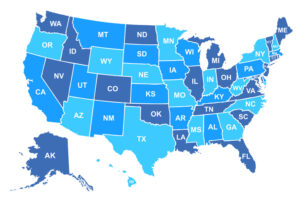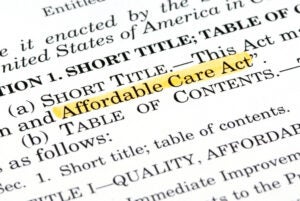Category: CHIR
After H.R.1, Millions More Could Lose Marketplace Coverage

Marketplace enrollees are facing threats to their health coverage and healthcare affordability as a result of the recently enacted budget reconciliation bill. CHIR expert Karen Davenport discusses the impending expiration of enhanced premium tax credits, which would drastically compound the coverage losses of H.R. 1 for American consumers.
CHIR Welcomes New Staff
We are delighted to welcome Sloane Daly as a Research Assistant.
The Dismantling of Obamacare Starts August 25 – Unless Litigation Can Stop It

The first of numerous federal policies that reverse recent coverage gains under the the Affordable Care Act are scheduled to go into effect on August 25, but two lawsuits have been filed to block them. CHIR’s Sabrina Corlette reviews the imminent policy changes, their impact, and the legal challenges to watch.
State Policymakers Show Growing Interest in Ownership Transparency in 2025

As state policymakers grapple with rising commercial health care prices, they showed a growing interest during 2025 legislative sessions in leveraging ownership transparency as a tool to understand health care markets, strengthen oversight efforts, and inform consumers. Stacey Pogue discusses what states are doing to increase ownership transparency, and how other states may follow.
H.R. 1, Recently Enacted Federal Budget Law Spells Trouble for Patients with Insulin-Requiring Diabetes
Kentucky Drops Adult Dental Care from State’s Essential Health Benefits Benchmark Plan Submission

The 2025 Notice of Benefit and Payment Parameters gave states the flexibility to require adult dental coverage beginning in plan year 2027. CHIR experts discuss Kentucky’s decision to not add adult dental services as an essential health benefit and what recent federal law changes may mean for states considering coverage changes.
June-July Research Roundup: Anticipated Effects of H.R. 1 on health insurance coverage, affordability, and uncompensated care

President Trump recently signed into law some of the most dramatic changes to our healthcare system since the Affordable Care Act (ACA) was enacted in 2010. CHIR’s Leila Sullivan provides a roundup of recent research projecting what the new law means for coverage, affordability, and uncompensated care.
Explainer: The Medicaid and Marketplace Provisions of the Budget Reconciliation Bill
Federal Officials Announce Steps To Strengthen Health Care Price Transparency

In May, the Departments of Health and Human Services, Labor, and the Treasury announced several actions to enhance health care price transparency. In her latest piece for Health Affairs Forefront, Stacey Pogue discusses how these actions mark the start of a process to make hospital and health plan price transparency data more accessible and useful.



